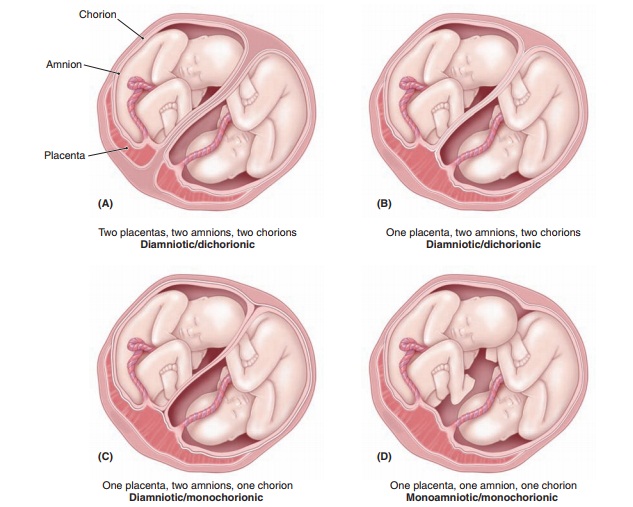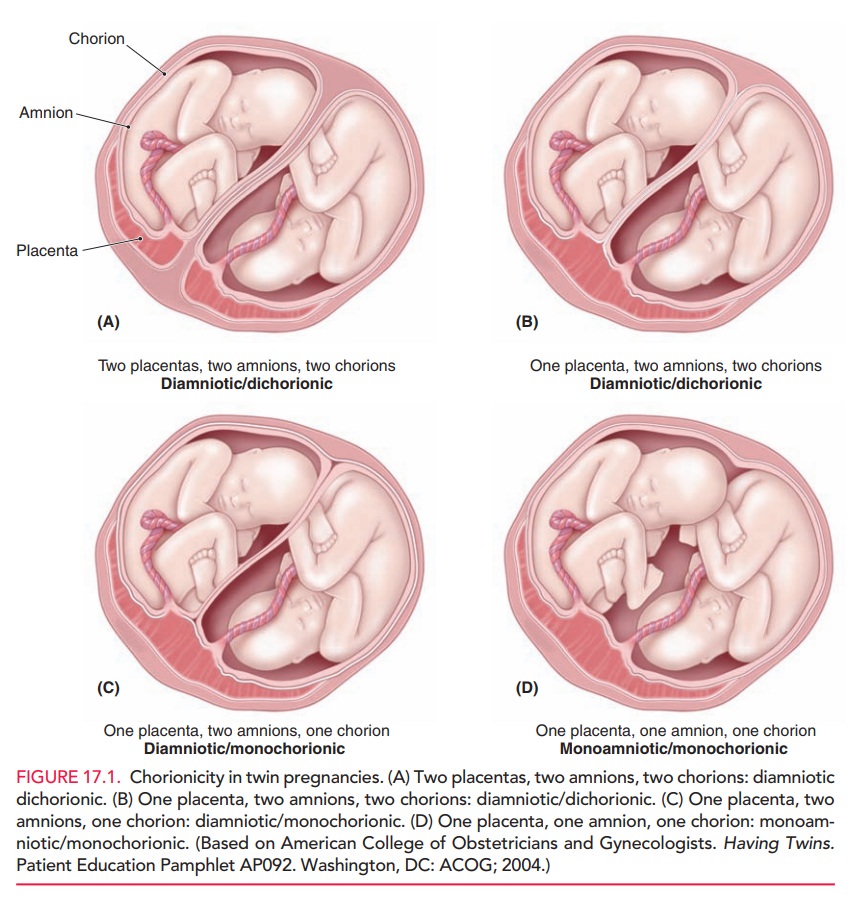Chapter: Obstetrics and Gynecology: Multifetal Gestation
Multifetal Gestation: Natural History

NATURAL HISTORY
The following describes the
various developmental se-quences possible when the monozygotic conceptus
sepa-rates into twins (also called chorionicity)
[Fig. 17.1]:
·
Diamnionic/Dichorionic:
If division of the conceptusoccurs within 3 days of
fertilization, each fetus will be surrounded by an amnion and chorion.
· Diamnionic/Monochorionic: If
division occurs be-tween the 4th and 8th day following fertilization, the
chorion has already begun to develop, whereas the amnion has not. Therefore,
each fetus will later be sur-rounded by an amnion, but a single chorion will
surround both twins.
· Monoamnionic/Monochorionic: In 1% of
monozy-gotic gestations, division occurs between days 9 and 12, after
development of both the amnion and the chorion, and the twins will share a
common sac. Division there-after is incomplete, resulting in the development of
con-joined twins. The fetuses may be
fused in a number ofways, with the most common involving the chest and/or
abdomen. This rare condition is seen in approximately 1 in 70,000 deliveries.
This condition is associated with a mortality rate of up to 50%.

Related Topics